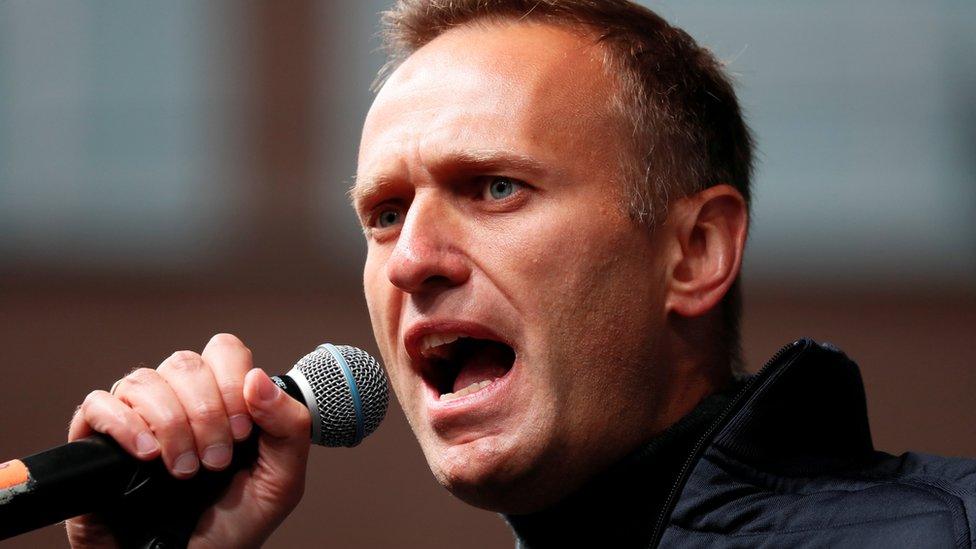Skripal case: US slaps new sanctions on Russia
- Published
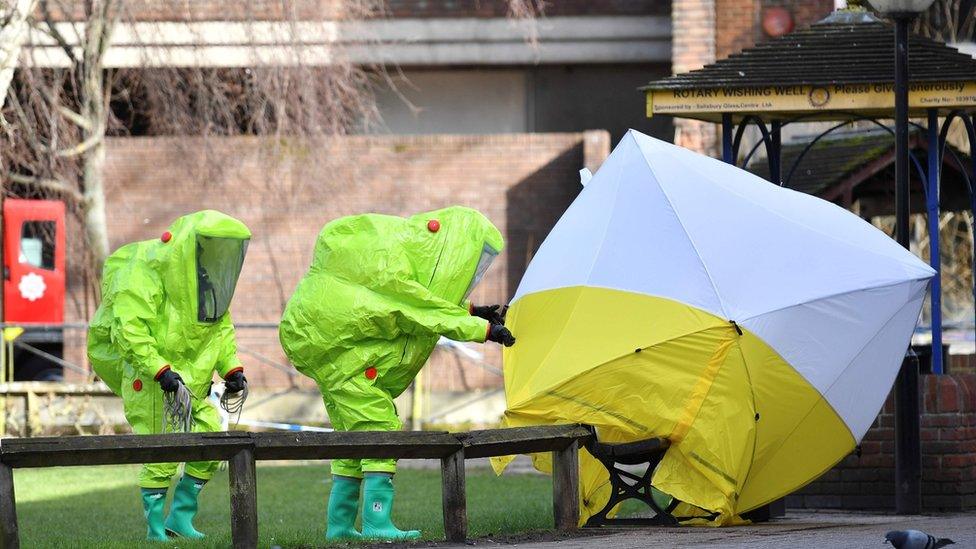
Parts of the city of Salisbury were sealed off after the nerve agent attack in 2018
US President Donald Trump has imposed new sanctions against Russia over the poisoning of a former Russian spy and his daughter in the UK in March 2018.
US banks are now banned from providing loans to Russia, and Washington will also be opposing any loan extension to Moscow by international institutions.
Sergei Skripal and his daughter Yulia were poisoned with the Russian nerve agent Novichok in Salisbury, though they have now recovered.
Russia denies any role in the attack.
Russia's foreign ministry said it regretted the latest US move, Russia's Ria news agency reports.
What are the new US sanctions?
Mr Trump signed an executive order to impose the second set of sanctions on Thursday. , external
The sanctions include opposing "the extension of any loan or financial or technical assistance... by international financial institutions".
The new measures would also "prohibit any United States bank from making any loan or providing any credit... except for loans or credits for the purpose of purchasing food or other agricultural commodities or products".
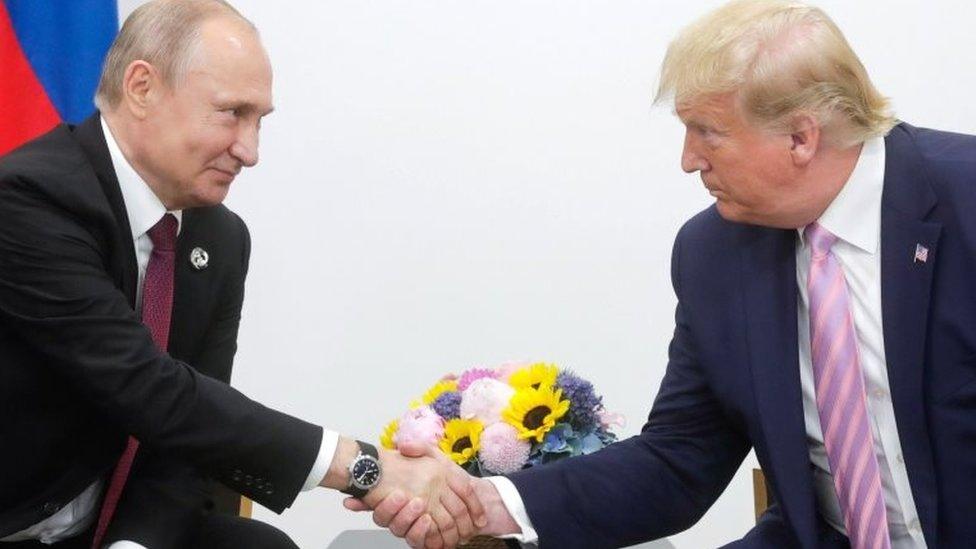
President Putin (left) and President Trump last met during the G20 summit in Japan in June
The sanctions were imposed under America's Chemical and Biological Weapons Control and Warfare Elimination Act adopted in 1991.
The act mandates the imposition of new sanctions within 90 days if Russia fails to give reliable assurance that it will no longer use chemical weapons.
The first set of US sanctions against Russia was imposed last August. They covered exports of sensitive electronic components and other technologies that could have military applications. Restrictions were also placed on Russian access to US financial services.
In recent months, the US Congress has been pressing President Trump to act again, saying that the 90-day deadline had long expired.
The sanctions came a day after Mr Trump and Russian President Vladimir Putin had a phone conversation.
Both the White House and the Kremlin said the two leaders discussed massive wildfires raging in Russia. They did not say whether the sanctions issue was also raised.
What happened to the Skripals?
Mr Skripal and his daughter Yulia were discovered unconscious on a bench in the UK city of Salisbury on 4 March.
A UK investigation blamed Russia for the Novichok attack.
The investigation also identified two suspects using the names Alexander Petrov and Ruslan Boshirov - both denied any involvement.
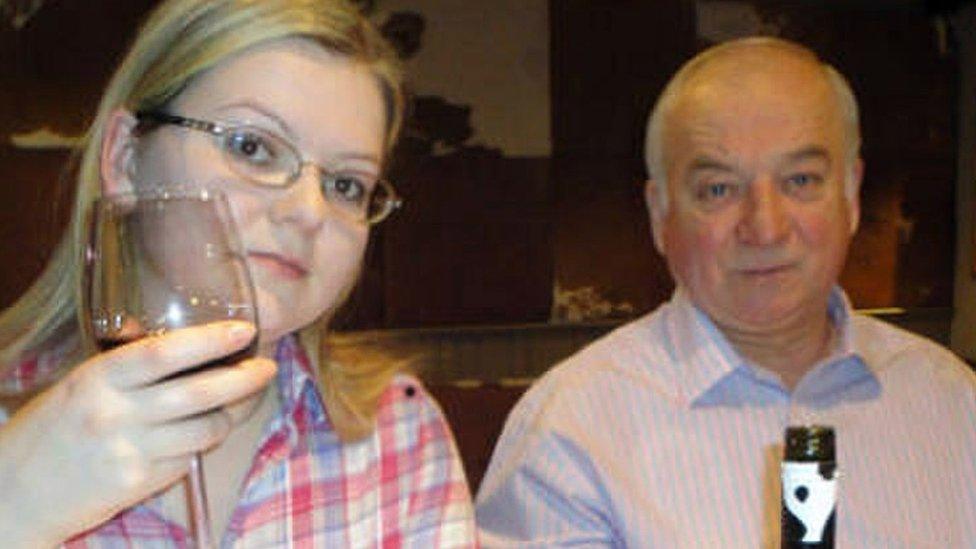
Sergei and Yulia Skripal were found unconscious on a bench in the city of Salisbury
Mr Skripal and his daughter recovered after intensive care in hospital, and their current whereabouts are being kept secret.
The attack prompted the UK and its Western allies to expel many Russian diplomats - and Russia retaliated with its own expulsions.
What was the nerve agent?
Following the incident, the British government said the military-grade nerve agent Novichok, of a type developed by Russia, had been used in the attack.
Laura Foster explains how the Novichok nerve agent works
Relations between Russia and the West hit a new low. More than 20 countries expelled Russian envoys in solidarity with the UK, including the US. Washington ordered 60 diplomats to leave and closed the Russian consulate-general in Seattle.
Three months after the Salisbury attack, two other people fell ill at a house in Amesbury, about eight miles from Salisbury. Dawn Sturgess later died while her partner, Charlie Rowley, spent three weeks recovering in hospital.
After tests, scientists at the UK's military research lab, Porton Down, found the couple had also been exposed to Novichok.
- Published27 September 2018
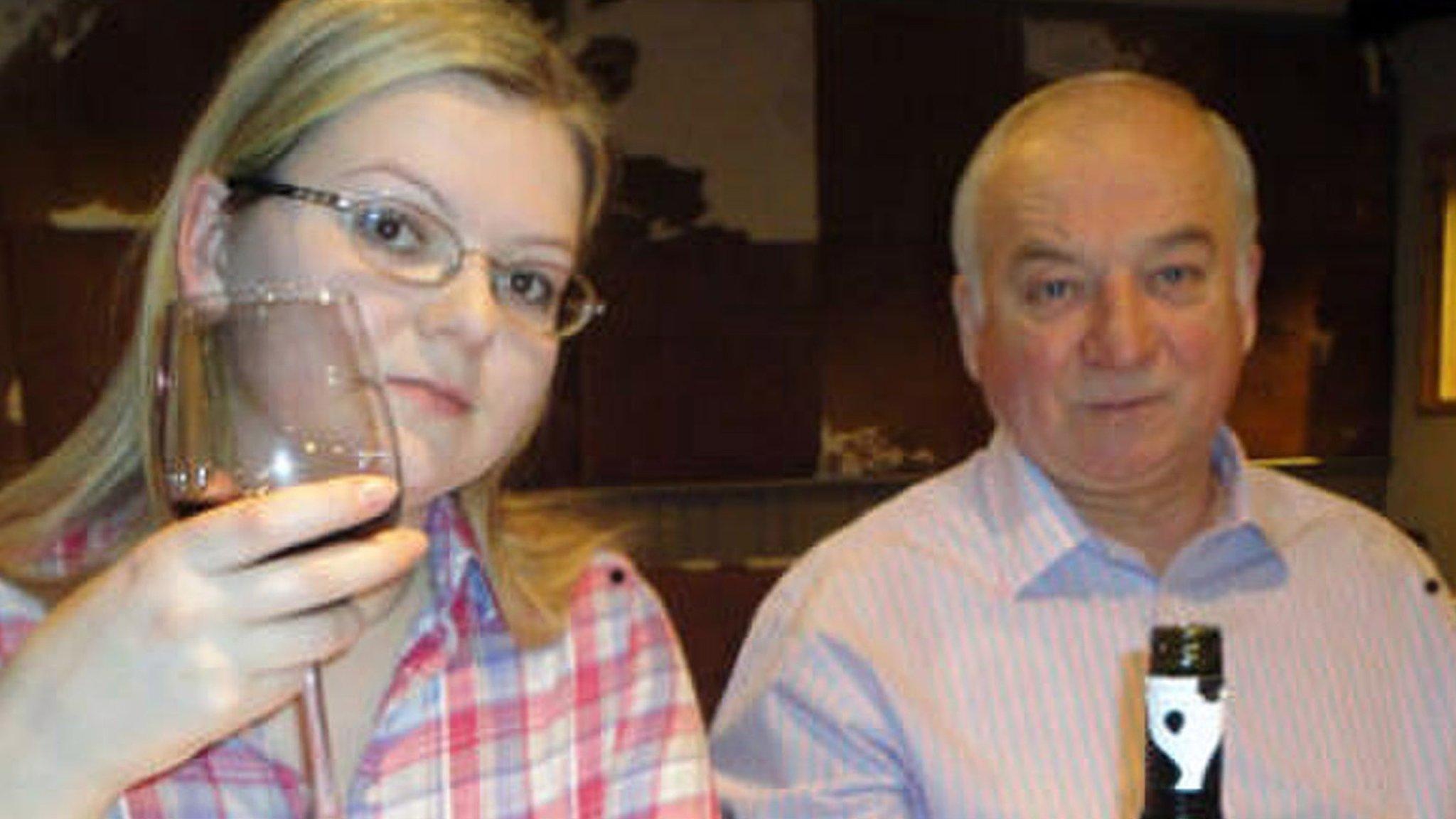
- Published2 September 2020
